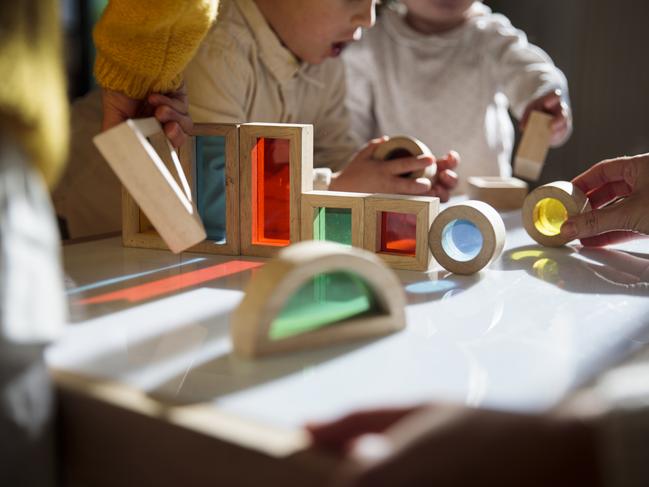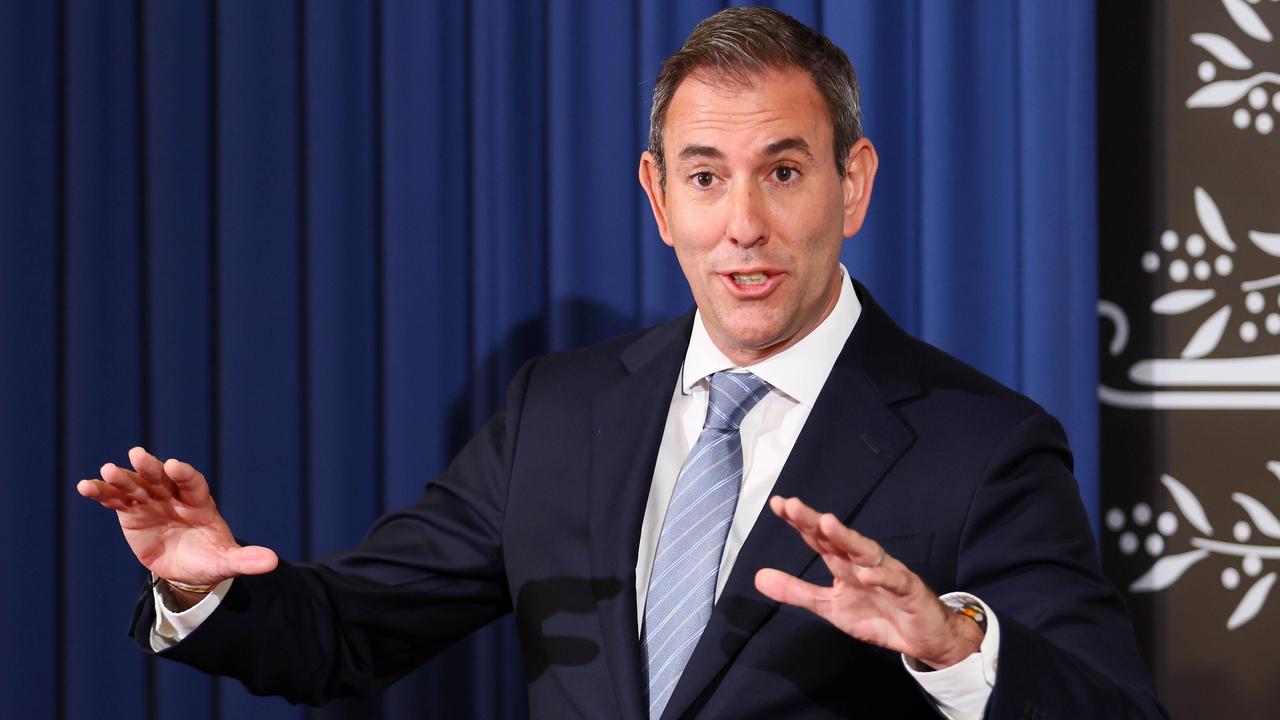Australian federal budget reveals $4250 super boost, child care pay rise, fraud crackdown
Working Aussie mums are set for a significant boost to their retirement nest egg, and child care workers are up for a raise as the government targets fraud.
Fed Budget
Don't miss out on the headlines from Fed Budget. Followed categories will be added to My News.
Adding superannuation to government paid parental leave will increase the average working mum’s retirement nest egg by $4250 at a cost to the taxpayer of $1.1bn over the next four years, Treasury estimates.
In other changes to super in the coming year, employer contributions rise to 12 per cent, the amount that can be contributed to super before tax increases by $2500 and the Albanese’s controversial increased tax on earnings from balances above $3m is set to kick in.
The parental leave payment, currently $852 a week, is available to both men and women but budget papers show that two-thirds of 180,000 recipients last year were women.

It currently provides up to 22 weeks of payments but this is to be increased to 26 weeks in 2026.
“This measure (starting July 1, 2025) will help to reduce the impact of parental leave on retirement incomes, with women currently retiring with 25 per cent less superannuation than men,” Finance Minister Katy Gallagher said.
Industry super lobby group the Super Members Council estimates that a mum of two could benefit by as much as $14,500 in retirement savings.
While the gap between the nest eggs of men and women has been narrowing, it has blown out for people in their 30s, when women often take time out of the workforce to have children.
Tax Office statistics show that the gap between 30-something men and women widened from 16 per cent in 2014 to 20 per cent in 2021.
And women still on average hit their 60s with $65,300 less in the kitty than men, according to SMC research.
SMC chief executive Misha Schubert said the move “takes Australia a step closer to ending the financial motherhood penalty many women face when they have children”.
“It’s a watershed reform that will powerfully build retirement savings for Australian mums and will narrow the gender gap at retirement,” she said.
The CEO of The Parenthood, Georgie Dent, said the move was “an important step towards women’s economic equality”.
“We know that women in Australia remain financially penalised for having children, making 55 per cent less on average after having children.
“It’s a substantial win for gender equity and will help ensure fewer women will experience poverty and homelessness as they approach retirement age.”
Super balances will also be boosted by an increase next month in the amount that can be contributed to super out of before tax earnings, from $27,500 to $30,000.
The amount increases in line with average weekly earnings and last went up in 2021.
Next year will be the first year of the Albanese government’s increased tax on earnings from super balances above $3m.
Earnings from big balances will be taxed at 30 per cent, the same as the corporate tax rate, instead of the lower super fund rate of 15 per cent.
Amid global economic turmoil, Treasury has slashed its estimate of the tax take from super this year by $3.4bn because of “weaker fund earnings and higher-than-expected refunds”.
It expects the poor performance of funds to continue for the next five years, cutting $12.8bn from its estimated tax take between next year and 2027-28.
CHILD CARE WORKERS’ PAY RISE; FRAUD CLAMPDOWN
The nation’s underpaid childcare workers will finally get a pay rise, but must wait to see how much and when.
The federal government revealed it is losing more than $100m a year to fraud and noncompliance within the Child Care Subsidy program and will spend an extra $25m annually to clamp down on dodgy providers and “individuals of high, unexplained wealth” connected to the sector.
Childcare workers looking for a reason to stay in the industry will be disappointed at the lack of detail around a much-hyped pay rise in the lead-up to the budget.
The papers reveal nothing will be finalised until after relevant Fair Work Commission processes have been considered.
Ms Dent said Planned Parenthood said would continue to back the United Workers Union’s call for a 25 per cent government-funded wage rise for educators and teachers.
At the very least, she said, she had hoped to see a 15 per cent increase announced in the budget, “with a commitment to a further increase in the future”.
She said educators are leaving in droves because they can earn more with less stress working at a supermarket.

“Educators being paid $23 an hour is less than an apprentice bricklayer,” Ms Dent said.
“Record staff shortages in early education and care mean this is a growing problem. Each unfilled educator role means up to 15 families will be unable to access care, and thus struggle to get to work to be able to provide for their family.”
Campaigners are also disappointed not to see any changes to the activity test, which is used to work out how much parents can claim back in subsidies.
“We are disappointed, however, that the Government has not responded to calls to remove or reform the activity test – the child care subsidy eligibility system that traps an estimated 40,000 women out of the workforce,” Ms Dent said. “We will continue to advocate for its removal.”
The ACCC Final Report and the Productivity Commission Draft Report both recommended its removal.
Meanwhile, budget papers reveal the government will crack down on fraud with the Child Care Subsidy system, spending $84.2m over four years on increasing audits of providers in the sector and manage the collection of childcare gap fees in the family daycare and in-home care sectors.
The budget papers also reveal it will spend $8.3m over the same period for Services Australia to upgrade the subsidy system to support new compliance measures; $4.8m to ensure providers are engaging with the Australian Taxation Office; and another $1.3m on identifying wealthy individuals within the sector who are rorting the system.

Part of the savings made from clamping down on fraud will contribute to funding more support for Indigenous education, with $110m over four years – and $11m a year ongoing – going towards helping close the gap.
Another $98.4m will go to supporting children with additional needs in childcare settings.
At the moment, many children with a disability find services refuse to take them because it costs the service to cross-subsidise inclusion support workers.
Large providers, such as not-for-profit Goodstart, said they are forced to use fee revenue received from other parents to pay for the support.
Parents – mostly women – will get an additional boost with the promise of superannuation being paid on the government’s paid parental leave, adding $4250 to the average mum’s retirement nest egg, at a cost to the taxpayer of $1.1bn over the next four years, Treasury estimates.
Originally published as Australian federal budget reveals $4250 super boost, child care pay rise, fraud crackdown


